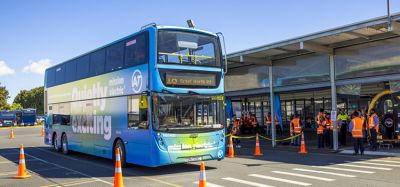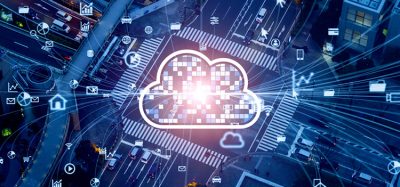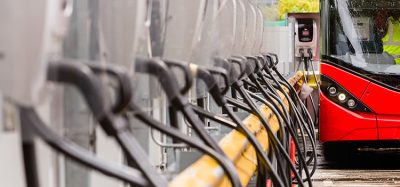“We must act and act now”: An interview with the Mayor of London, Sadiq Khan
- Like
- Digg
- Del
- Tumblr
- VKontakte
- Buffer
- Love This
- Odnoklassniki
- Meneame
- Blogger
- Amazon
- Yahoo Mail
- Gmail
- AOL
- Newsvine
- HackerNews
- Evernote
- MySpace
- Mail.ru
- Viadeo
- Line
- Comments
- Yummly
- SMS
- Viber
- Telegram
- Subscribe
- Skype
- Facebook Messenger
- Kakao
- LiveJournal
- Yammer
- Edgar
- Fintel
- Mix
- Instapaper
- Copy Link
Posted: 20 October 2021 | Leah Hockley - Intelligent Transport | No comments yet
Intelligent Transport’s Deputy Editor, Leah Hockley, sat down with the Mayor of London, Sadiq Khan, to discuss London’s efforts to deliver sustainable public transport and why it is of such importance to make this shift to zero emission vehicles in the face of rising temperatures and poor air quality.
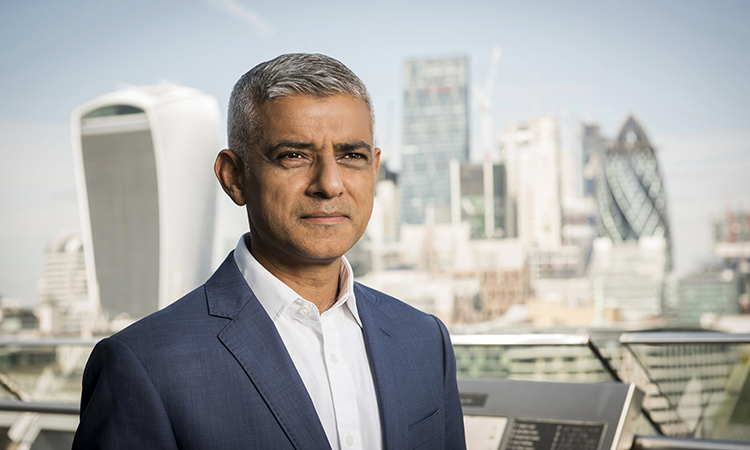

Credit: Greater London Authority
On 17 September 2021, Intelligent Transport’s Leah Hockley attended the Zero-Emission Bus Summit at London’s City Hall, organised by the Mayor of London, Sadiq Khan, and Campaign for Better Transport. The summit brought together central government and local authority representatives, bus operators, manufacturers, policy makers and several other stakeholders to find collaborative ways to bring transformational change faster to UK towns, cities and rural areas and to speed up the procurement of and investment in zero emission buses across the UK.
During the summit, the Mayor of London made the announcement that all new buses ordered by Transport for London (TfL) for the capital will now be zero-emission, building on its recent achievement of making its entire bus fleet compliant with strict Euro VI emission standards – the same standards as the Ultra Low Emission Zone (ULEZ). Those in attendance were given the opportunity to see one of London’s new double-decker electric buses before it is put into service – physical proof of the progress that is being made in the English capital city.
We’re running out of time to tackle the grave threat that climate change poses to our future. Quite simply, we must act and act now”
Opening the summit with a keynote speech, the Mayor of London had a powerful message to share with those in attendance: “I’ve seen many things as the Mayor of London, but you still can’t beat the feeling of sitting on the top deck of a London bus. Our buses have changed a lot since [my childhood]. So has our city, and so has our environment. Only this week, new analysis by the BBC revealed that the number of extremely hot days every year – extremely hot being when the temperature reaches 50 degrees Celsius – has doubled since [my] days on my dad’s buses in the 1980s. This report is just another in a long list of sobering and devastating warnings that we’re running out of time to tackle the grave threat that climate change poses to our future. Quite simply, we must act and act now, and the same is true for air pollution. It can’t be right that in great cities like ours, London, the air that we breathe is so toxic, contributing to premature deaths and children growing up with stunted lungs.”
Our current commitment to deliver a 100 per cent zero-emission bus fleet in London has been brought forward by three years, from 2037 to 2034, but this is just the start”
“That’s why today, as part of all our work to help with both air pollution and the climate emergency, I’m proud to announce that we’ve taken another great step forward. From now on, London will only procure zero-emission buses. I can also today announce that our current commitment to deliver a 100 per cent zero-emission bus fleet in London has been brought forward by three years, from 2037 to 2034, but this is just the start. With additional funding and support from the government, as well as the efforts by bus manufacturers and operators gathered here today, I’m confident that we can achieve a fully zero emission bus network by 2030,” he proudly announced.
We can’t allow ourselves to sleepwalk from the health crisis of COVID-19 back into the complacency of the threat of climate change and toxic air”
Nearing the end of his keynote, the Mayor concluded: “There’s an old saying. You wait ages for a bus then two come along at once. Well, the same is true for crises. The COVID-19 pandemic has shaken our country and the world to its very core. It’s a crisis shattering the norms of our day-to-day life, costing millions of lives and livelihoods, and forcing us to think of ourselves not just as individuals but as part of a collective, fighting against a common enemy. Human-caused climate change is also a crisis and an even bigger threat than COVID-19, and it needs a global response that will dwarf anything that our international communities have been able to provide before. We can’t allow ourselves to sleepwalk from the health crisis of COVID-19 back into the complacency of the threat of climate change and toxic air.”
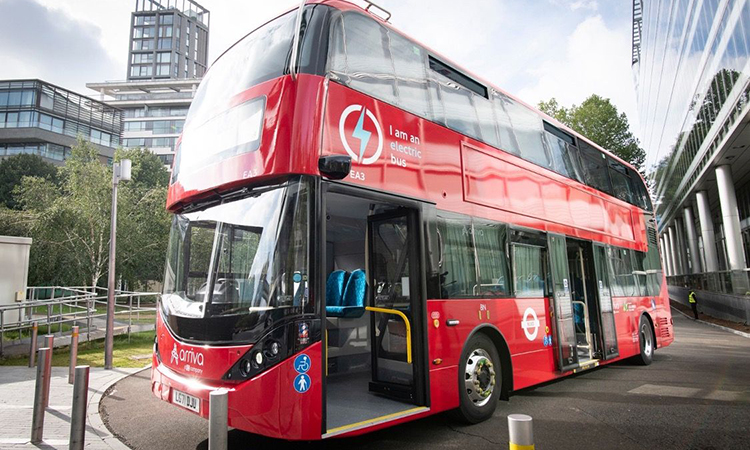

Credit: Greater London Authority
An interview with the Mayor of London
Before the summit began, our Deputy Editor, Leah Hockley, sat down with the Mayor of London to garner his thoughts on London’s air quality; how the city is encouraging a modal shift from the private car to more sustainable public transport; and whether or not Transport for London’s inconsistent funding structure is what is holding the city back from achieving green shared mobility.
Considering the recent report that highlighted London’s poor air quality, have your priorities shifted in order to accelerate the city’s move to cleaner, more sustainable transport?
By investing in zero emission buses, we’re addressing climate change, we’re addressing toxic air, but we’re also supporting the creation of jobs across the country”
Sadiq Khan (SK): “Absolutely. We’re trying to tackle two things at the same time: one is the issue of climate change – and there truly is a climate emergency – and secondly is tackling the toxic air in our city. We know, as a consequence of the toxic air – caused by carbon emissions, particulate matter, nitrogen oxide and nitrogen dioxide – that we have thousands of Londoners dying prematurely.
“We have children with permanently stunted lungs caused by the toxic air, but also adults with a whole host of health issues – from asthma, like I’ve got, to dementia, heart disease and cancer. So, by investing in zero emission buses, we’re addressing climate change, we’re addressing toxic air, but we’re also supporting the creation of jobs across the country – from Falkirk in Scotland and Ballymena in Northern Ireland, to Scarborough and Leeds in England, as well.”
With COP26 fast approaching, do you think that London is doing enough to deliver green public transport and encourage a modal shift from the private car?
I think that we are doing all that we can, but I think that we can do more with government support”
SK: “I think that we are doing all that we can, but I think that we can do more with government support. Over the last five years, we’ve managed to freeze public transport fares, which has led people to get back onto public transport and out of their private cars. We have had a fivefold increase in cycling, and we’ve got more and more wider papers encouraging active travel, as well.
“We’ve done all that we can: policies focused on greener streets, low traffic neighbourhoods, active travel, 20 miles per hour zones, zero emission buses, electric taxis, the world’s first Ultra Low Emissions Zone (ULEZ) – which has seen a massive improvement in air quality and is going to be expanded 18-fold in October 2021. The problem is, only half of our carbon emissions come from transport. We just don’t have the powers and resources to address some of those other things. So, although my new London Plan requires all new buildings to be zero carbon with support from the government, including resources and powers, we could do even more.”
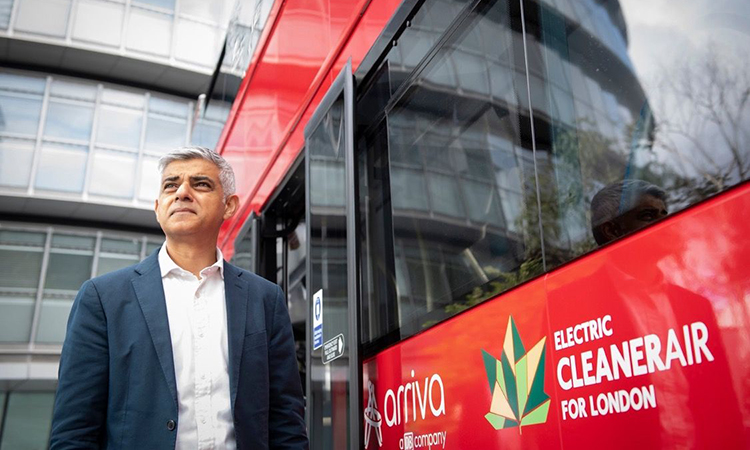

Credit: Greater London Authority
Are there more initiatives in the pipeline to position London as a world leader in delivering sustainable public transport?
SK: “Absolutely. One of the reasons why we’re hosting this summit today is to spread best practice and to get good ideas from various colleagues from around the country, but across the world, as well. We have colleagues from offices from across the globe here today – we need to work with other cities.
One of the great things about COP26 being in our country this year is that it gets people thinking about what more we can do to address the really serious issue of climate change”
“So, for example, can we be buying things together to reduce the cost? Can we, for example, be sharing best practice in relation to how we monitor air quality to make sure that we can measure the toxic air. Other things that we can learn about are in relation to how we ‘green’ greyer parts of our city in order to utilise basic photosynthesis to get rid of some of the toxic pollutants in the air.
“We’re always seeking to learn from other cities around the world. One of the great things about COP26 being in our country this year is that it gets people thinking about what more we can do to address the really serious issue of climate change.”
Do you think that there needs to be a more permanent solution to Transport for London’s funding in order to ensure that it delivers on its sustainability targets?
SK: “I think that these short-term, six-month hand-to-mouth deals are not good for anybody. It means that we can’t plan for the future; the uncertainty means that we can’t agree good deals with our supply chain that we procure from, but also means that we can’t plan services going forward. We want to plan services for the long-term, including capital investment. So, we’re lobbying the UK government for a long-term deal. We think that we can be sustainable in terms of revenue by 2023 without any supporting capital.
If the government wants a national recovery, they need a London recovery”
“There is no public transport authority in the world that isn’t subsidised by the central government, even New York. You can look at Paris, look at any other city in the world. The UK government needs to realise that one of the reasons why London can contribute so much to our national economy – £40 billion net – is because of the contribution made to our city by TfL. So, if the government wants a national recovery, they need a London recovery.
Related topics
Air Quality, Alternative Power, COVID-19, Public Transport, Sustainable Urban Transport
Related modes
Bus & Coach
Related cities
London, United Kingdom
Related organisations
Campaign for Better Transport, Transport for London (TfL), UK Government
Related people
Sadiq Khan




